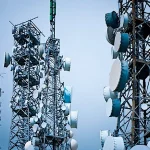The Price of Staying Connected in Nigeria
In today’s digital age, internet connectivity is as essential as electricity and clean water. Yet, for many Nigerians, staying connected comes at a steep price, both financially and in terms of...

In today’s digital age, internet connectivity is as essential as electricity and clean water. Yet, for many Nigerians, staying connected comes at a steep price, both financially and in terms of service quality.
Table Of Content
At the start of 2025, Nigerian telecom subscribers faced a significant 50% increase in tariffs on voice, data, and SMS services. This hike led to a decline of approximately one million internet users in February, as reported by the Nigerian Communications Commission (NCC). Data consumption also dropped by 12% in the same month, reflecting consumers’ cautious usage in response to increased costs.
The tariff adjustments were attributed to escalating operational costs for telecom operators, driven by factors such as high inflation, currency devaluation, and increased energy expenses. In 2023, MTN Nigeria reported losses of approximately ₦137 billion, while Airtel Africa experienced a 15.55% decline in Profit Before Tax, largely due to foreign exchange and energy-related losses.
Despite the higher costs, service quality issues persist. The NCC identified data depletion and billing issues as the top consumer complaints in 2024. Dr. Aminu Maida, Executive Vice Chairman of the NCC, noted that the complexity of tariff plans and the impact of high-resolution devices contribute to these concerns. To address this, the NCC issued a ‘Guidance for the Simplification of Tariffs,’ mandating operators to provide clear information on data plans and
Gbenga Adebayo, President of the Association of Licensed Telecom Operators of Nigeria (ALTON), acknowledged that many consumers are unaware of background data usage by smart devices, leading to unexpected data depletion. He emphasized the industry’s commitment to transparency and consumer
The increased costs and service issues have led to a surge in subscribers switching networks. In January 2025, over 8,700 subscribers ported their numbers to different operators, a 190% increase from the previous month. 9mobile experienced the highest customer losses, while MTN, Airtel, and Globacom gained subscribers during this period
Despite these challenges, the telecom sector saw growth in active subscriptions, rising to 169.3 million in January 2025. MTN led with 87.5 million subscribers, followed by Airtel with 57.6 million, and Globacom with 20.5 million
Telecom Giants vs the People
Nigeria’s telecom operators have made significant investments in expanding broadband coverage, with initiatives like 4G and 5G rollout, fiber infrastructure, and partnerships with global tech firms. However, these investments are often driven by profit, not inclusion.
Despite NCC’s efforts to regulate pricing and improve service delivery, consumers regularly complain about data zapping, network downtimes, and non-transparent billing practices. Competition has done little to force down prices meaningfully, as all major players face similar infrastructural hurdles and operational costs.
A Call for Digital Justice
If Nigeria is serious about becoming a digital economy powerhouse, it must confront the high cost of connectivity head-on. This means investing heavily in:
- Rural broadband infrastructure
- Affordable data pricing models
- Improved electricity access
- Consumer protection regulations
Public-private partnerships must be strengthened to reduce costs while maintaining profitability. Local innovation in satellite internet, community Wi-Fi, and solar-powered connectivity hubs must be encouraged and scaled.
Conclusion: Connectivity Is a Right, Not a Privilege
The internet fuels education, commerce, healthcare, and governance. For Nigeria’s youths, startups, and underserved communities, access to affordable and reliable internet can mean the difference between opportunity and exclusion.
The cost of staying connected should not cost Nigerians their dignity, income, or peace of mind.
It’s time we reframe internet access in Nigeria not as a commercial commodity—but as a public utility, a human right, and a catalyst for national development.
The Path Forward
As Nigeria continues to embrace digital transformation, ensuring affordable and reliable connectivity is crucial. Stakeholders must collaborate to address infrastructural challenges, simplify tariff structures, and enhance service quality. Only then can the promise of a connected Nigeria be fully realized.
Don Pedro Aganbi is a technology journalist and advocate for digital inclusion in Nigeria.









No Comment! Be the first one.